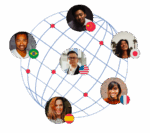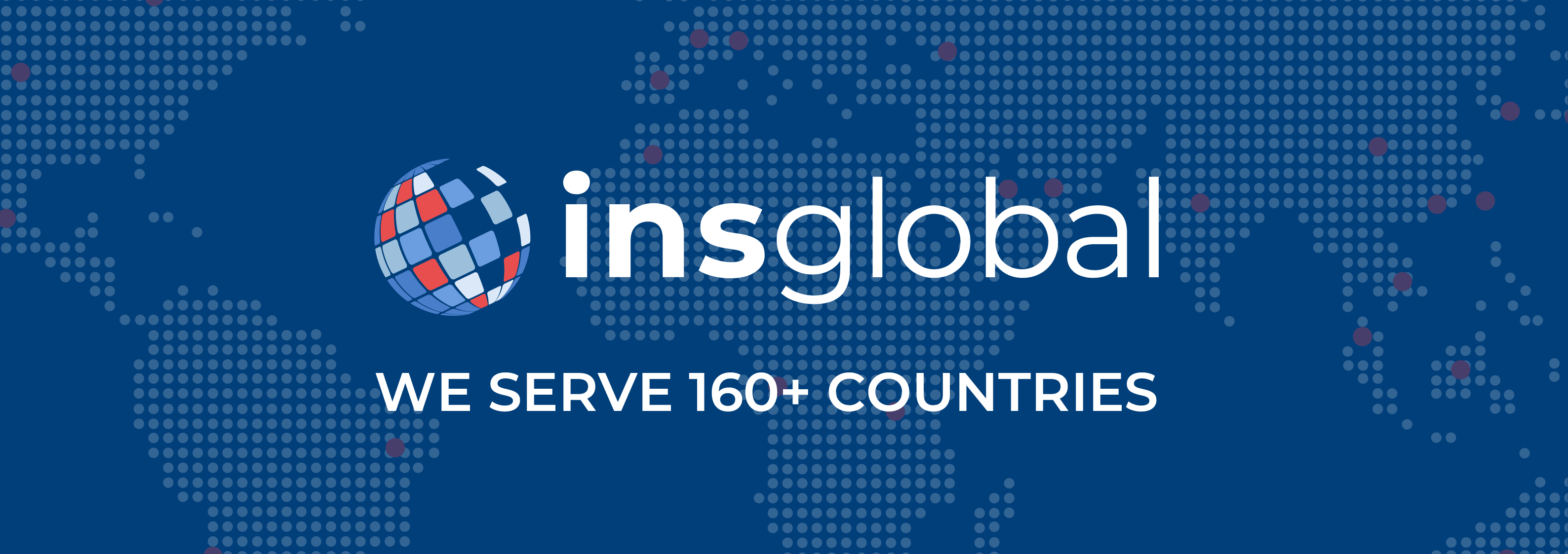The global talent pool is expanding rapidly. More professionals are working across borders, contributing to international teams, and bringing diverse experiences into the workplace. For forward-thinking companies, this presents a powerful opportunity. Rather than relying on narrow hiring funnels, businesses can now tap into talent worldwide for a truly diverse applicant pool. The key lies in a strong diversity sourcing strategy.

Why Diversity Sourcing Matters More Than Ever
Diversity sourcing is more than checking a box or meeting a quota. It is about embedding inclusion into every level of hiring. That means identifying gaps, challenging biases, and implementing systems that attract, engage, and support talent from all backgrounds. Companies that do this well see stronger innovation, improved team performance, and greater global success.
Diversity drives innovation and problem-solving
Innovation thrives when people approach problems from different angles. Diverse teams challenge assumptions and introduce fresh perspectives. In a global economy, businesses need those kinds of solutions that resonate across markets and cultures, so the more varied your team, the more adaptable your business becomes.
When companies source talent from a single location or demographic, they limit creativity. But when they cast a wider net, they unlock a global library of knowledge.
DEI is no longer optional. It is a business imperative
Customers, employees, and stakeholders now expect companies to demonstrate their commitment to diversity, equity, and inclusion across many of the world’s biggest markets. But a strong DEI strategy is not just good ethics; it can also be a legal requirement, depending on the location.
Diversity sourcing is the first step in a long-term strategy. Companies must be intentional about where and how they recruit. They must examine job descriptions, outreach practices, and candidate evaluation for hidden bias.
A diverse workforce reflects global customer bases
Companies expanding internationally must ensure that their teams reflect the customers they serve. Hiring locally in new markets shows respect for regional insight and builds credibility with new audiences. It also leads to better products, services, and customer support.
Companies with inclusive teams outperform their peers
Study after study confirms what many companies already know: that inclusive teams perform better. They adapt faster to change, make better decisions, and are more profitable over time. They also enjoy lower turnover and higher employee satisfaction.
When companies commit to diversity sourcing, they are not just checking a box. They are investing in the long-term resilience of their business.
11 Types of Diversity in the Workplace and Why They Matter
1. Cultural Diversity
Cultural diversity includes individuals from different national, ethnic, or cultural backgrounds. It promotes a rich exchange of ideas, perspectives, and practices. Companies with cultural diversity can better understand international markets, reduce groupthink, and build globally resonant products and services.
2. Racial and Ethnic Diversity
Racial and ethnic diversity ensures that people from all racial and ethnic groups have equal access to opportunities. It fosters an inclusive environment that reflects broader society and encourages innovation through the varied lived experiences and insights of different racial communities.
3. Gender Diversity
Gender diversity means fair representation and inclusion of all genders across roles and leadership levels. It reduces pay gaps, supports collaboration, and ensures decisions are made from multiple viewpoints. Gender-diverse companies often outperform their peers in profitability and employee satisfaction.
4. Age Diversity
Age diversity involves including individuals from various age groups and generations. It enhances team dynamics by blending experience with fresh perspectives. Organizations benefit from institutional knowledge, creativity, and adaptable problem-solving when teams are made up of people from different age brackets.
5. LGBTQ+ Diversity
LGBTQ+ diversity promotes acceptance and inclusion of diverse sexual orientations and gender identities. Supporting LGBTQ+ employees builds trust and psychological safety. Companies that create space for LGBTQ+ professionals demonstrate their commitment to equality and often benefit from increased creativity and engagement.
6. Religious Diversity
Religious diversity means welcoming employees of various faiths and belief systems. It involves respecting religious holidays, dietary practices, and cultural customs. Inclusive workplaces allow people to bring their full selves to work while promoting mutual respect and reducing conflict.
7. Socioeconomic Diversity
Socioeconomic diversity ensures opportunities for individuals from a range of financial and social backgrounds. It can foster resilience, innovation, and empathy in teams. Companies that embrace this diversity expand access to talent and contribute to broader social equity.
8. Neurodiversity
Neurodiversity refers to the inclusion of individuals with neurological differences such as autism, ADHD, or dyslexia. These individuals often possess unique strengths in focus, pattern recognition, or creative thinking. Inclusive hiring allows organizations to unlock new capabilities and innovation.
9. Disability Inclusion
Disability inclusion means hiring and supporting people with physical, sensory, cognitive, or mental health disabilities. Accommodating diverse abilities enhances workplace accessibility, promotes fairness, and strengthens team empathy and problem-solving through diverse perspectives and lived experiences.
10. Educational Background
Including employees with varied academic qualifications and training paths brings diverse thinking into teams. People with different educational experiences offer unique approaches to challenges and decision-making. This diversity is especially valuable for innovation, adaptability, and cross-functional collaboration.
11. Language and Communication Styles
Language and communication diversity includes multilingual professionals and those with different expression styles. Embracing varied ways of speaking and understanding promotes clarity, inclusion, and cross-cultural collaboration. It also helps organizations operate more effectively in international and multicultural markets.
5 Proven Strategies to Source Diverse Candidates
1. Anchor the same role in multiple global locations
Hiring for a remote position should not mean limiting applicants to one city or time zone, so when you advertise the same role in multiple regions, you open the door to a wider variety of candidates. This reduces geographic bias and allows the role to attract individuals with different cultural, educational, and economic backgrounds.
Posting roles across continents ensures greater exposure and demonstrates a commitment to building a team that is not centralized in one hiring bubble.
2. Expand your sourcing channels
Too many companies rely on the same global job boards or recruitment agencies. While convenient, these channels often reinforce bias and exclusion. So, in order to reach more diverse candidates, hiring teams need to go where those candidates are.
This means posting jobs on regional platforms, industry-specific sites, university job boards, and diversity-focused networks.
3. Ask for employee referrals with intention
Referral programs are powerful tools, but they often reflect existing team demographics. To make them inclusive, companies must be deliberate. Encourage employees to reach out to networks outside of their immediate circles, particularly those connected to underrepresented groups.
4. Promote a clear and measurable DEI policy
Candidates want to know that diversity is not just a buzzword. Including your DEI commitments in job posts, careers pages, and outreach materials shows that your company values representation and equity.
It’s best to think about how to communicate DEI policies clearly and authentically, including reaching out for support on how to help develop performance metrics that hold leadership accountable.
5. Use inclusive and neutral language in your job descriptions
Language can unintentionally exclude entire groups of candidates. Gender-coded words, technical jargon, and idiomatic expressions often reflect unconscious bias. Rewriting job descriptions with inclusive language broadens appeal and improves application rates.
Always review job descriptions for inclusivity, clarity, and accessibility in terms of language and accessibility.
INS Global’s Approach to Inclusive Talent Acquisition
INS Global has spent nearly two decades helping businesses hire across borders. In that time, we have developed a proven approach to sourcing diverse talent worldwide. Our services are designed to reduce complexity, increase fairness, and deliver consistent results.
Whether you are hiring one remote developer or building a regional team, we give you the tools to do it right. That means legal compliance, payroll support, and DEI-friendly hiring frameworks tailored to your goals.
Supporting clients with tailored DEI-friendly hiring frameworks
Diversity means different things to different organizations. For some, it means hiring across cultures. For others, it means increasing gender balance or improving representation among leadership. INS Global helps companies clarify their goals and design sourcing strategies that align with the values of their company and the market they are hiring in.
This includes reviewing job descriptions for inclusivity, identifying blind spots in sourcing, and advising on candidate evaluation. Our goal is to help you find the best people, not just the most obvious ones.
Leveraging our presence in 160+ countries to access untapped talent pools
One of the biggest barriers to diversity is limited visibility. Companies often rely on the same hiring platforms and regions, which leads to homogenous candidate pools. INS Global helps clients break out of this pattern.
We have recruitment channels and talent networks in over 160 countries. This allows us to reach candidates in emerging markets, rural regions, and historically underrepresented communities. It also means we can find talent that is not just skilled but uniquely suited to your global goals.
Enabling compliant and bias-free employment through EOR infrastructure
Even when companies want to hire inclusively, legal concerns often get in the way. Different countries have different employment laws, tax requirements, and benefit expectations. Hiring without local expertise can lead to costly errors.
INS Global eliminates this risk. With the ability to act as your EOR (Employer of Record), we handle all compliance matters. We manage contracts, payroll, benefits, and onboarding. That means you can hire in new regions confidently and fairly, without setting up a local entity or navigating legal hurdles alone.
Helping HR leaders expand beyond traditional talent hubs
Many companies still rely on a small number of hiring markets. While these locations offer strong candidates, they are also highly competitive and increasingly expensive. Worse, they often lack the diversity that businesses now require.
INS Global helps clients explore new regions with lower competition and higher potential. By expanding sourcing beyond traditional hubs, you gain access to talent that is not only more diverse but often more loyal and cost-effective. It is a win for both performance and equity.
Beyond Sourcing: Building Long-Term DEI Into Your Hiring Strategy
Localized onboarding and retention support through our in-country HR specialists
Diversity sourcing is only the beginning. To build truly inclusive workplaces, companies need systems that support retention and advancement. One of the most impactful tools is localized onboarding. HR specialists provide orientation and support tailored to regional expectations and cultural norms. This helps new hires feel included and informed from day one.
The right local support can help ensure your onboarding process respects local customs, communication styles, and working norms. This creates a stronger sense of belonging and improves long-term employee engagement. For global teams, thoughtful onboarding bridges cultural gaps and sets the tone for collaboration.
Payroll and benefits design that respects local equity norms
Equity in compensation is a vital part of building inclusive workplaces. In many countries, expectations around benefits, pay transparency, and family leave vary widely. Companies that fail to account for this risk creating internal imbalances that erode trust.
Payroll and benefits plans that meet or exceed local equity standards, whether you are hiring in Southeast Asia, Latin America, or Europe, can ensure that each employee is compensated fairly and receives benefits that reflect their market. This creates a level playing field across global teams and reinforces your DEI values.
Compliance with local employment laws to prevent discrimination risks
Navigating employment law is complex, especially when hiring across borders. Anti-discrimination protections vary significantly from country to country. What is legal in one jurisdiction may be unlawful in another.
INS Global helps companies remain compliant by handling labor law requirements through our Employer of Record structure. We ensure that every employment contract reflects local standards and safeguards employee rights.
Ready to Diversify Your Workforce with INS Global?
Talk to an expert about your hiring goals
Every company has different hiring needs and DEI priorities. Some are just beginning the journey, while others are ready to scale. No matter where you are, INS Global can help. Our experts will review your current practices, identify areas for improvement, and build a sourcing plan that aligns with your goals.
Explore how our Employer of Record solution helps simplify international recruitment
Compliance, payroll, and contracts are major barriers to global hiring. INS Global solves this by acting as the legal employer for your international hires. We take care of every legal and administrative task so that your HR team can focus on strategy and engagement. This makes it easier to recruit inclusively across borders without adding risk.
Learn how companies like yours are hiring across borders while prioritizing DEI
We have helped dozens of companies across industries implement diversity sourcing strategies that work. Contact our expert advisors today to see how cutting-edge hiring and employment strategies can help you. From scaling remote teams to building region-specific outreach campaigns, we give you the support you need to grow quickly, compliantly, and according to your needs.
Frequently Asked Questions About Diversity Sourcing
What is diversity sourcing in recruitment?
Diversity sourcing refers to the strategies and practices companies use to identify, attract, and engage candidates from underrepresented or varied backgrounds. It is a proactive effort to ensure that hiring processes are inclusive and result in a more diverse talent pool.
Why is diversity sourcing important for global companies?
Diverse teams bring broader perspectives, drive innovation, and reflect global customer bases. For international businesses, diversity sourcing helps build teams that understand regional nuances and serve diverse markets effectively. It also contributes to better business outcomes and a stronger employer brand.
How can a company ensure its job descriptions are inclusive?
Inclusive job descriptions use neutral language, avoid jargon, and clearly communicate the company’s DEI values. Avoiding gender-coded terms and using clear, accessible language helps attract a wider range of applicants.
What role does an Employer of Record play in supporting DEI?
An Employer of Record like INS Global handles legal employment on behalf of a client company. This ensures that international hires are employed compliantly and equitably, regardless of location. It also removes legal and administrative barriers that might otherwise prevent diverse hiring in certain regions.
Can diversity sourcing reduce hiring costs?
Yes. By expanding talent sourcing beyond saturated markets, companies often discover qualified candidates in lower-cost regions. This not only supports budget goals but also improves diversity. INS Global helps clients access these untapped markets while maintaining full compliance.
How do you measure success in diversity sourcing?
Success is measured by tracking representation across demographics, improving retention among underrepresented groups, and evaluating the inclusiveness of hiring processes.
Let Us Help You Build a Truly Inclusive Global Team
Diversity sourcing is not a trend. It is a strategic priority that drives innovation, resilience, and market success. Companies that embrace it will outperform and outlast those that do not. INS Global gives you the tools, talent, and compliance framework to do it right.
From sourcing and interviewing to payroll and onboarding, we make global hiring simple and inclusive. Partner with us to expand your reach, improve your outcomes, and lead the way in building a workforce that reflects the world.


SHARE